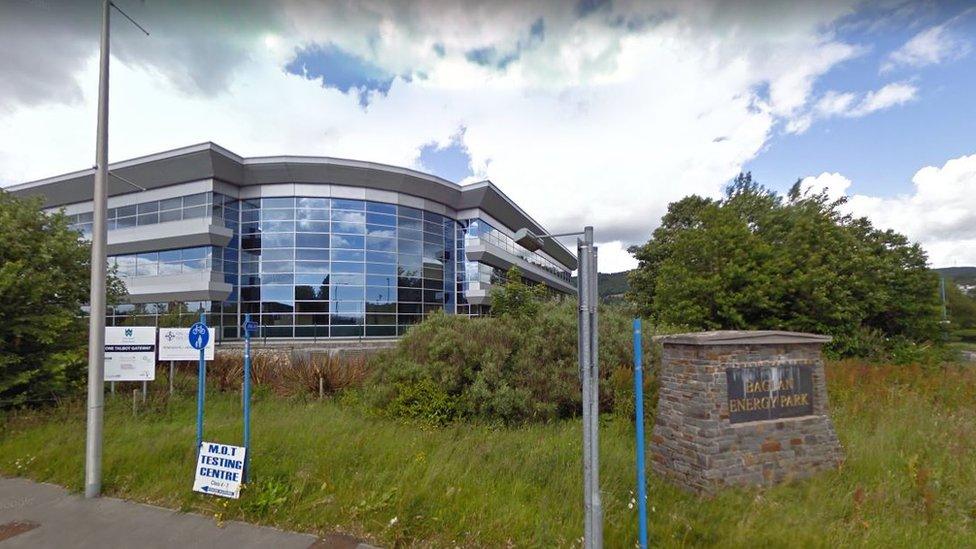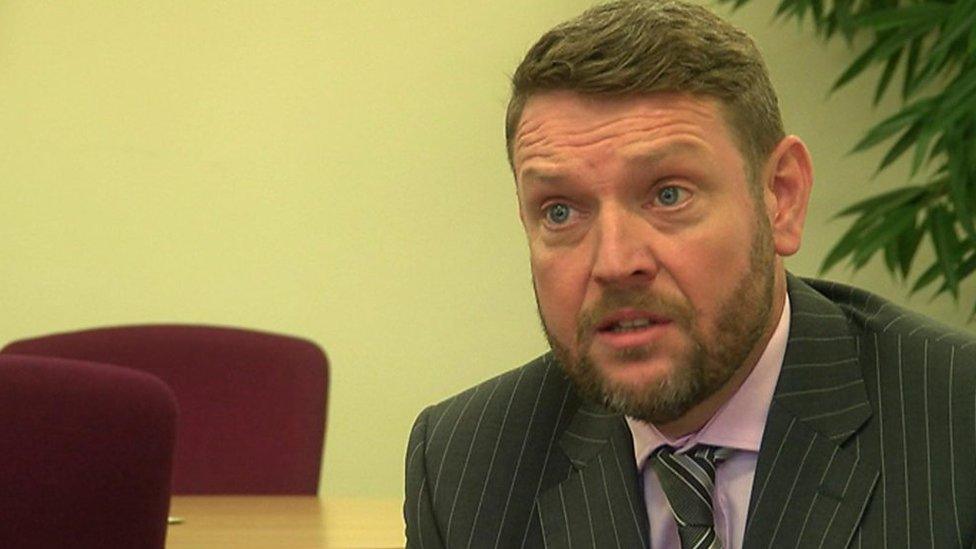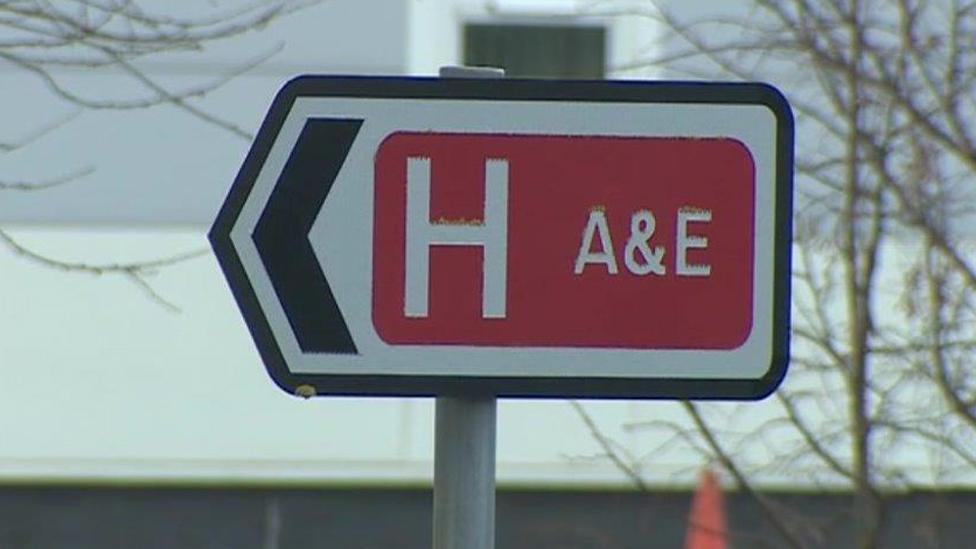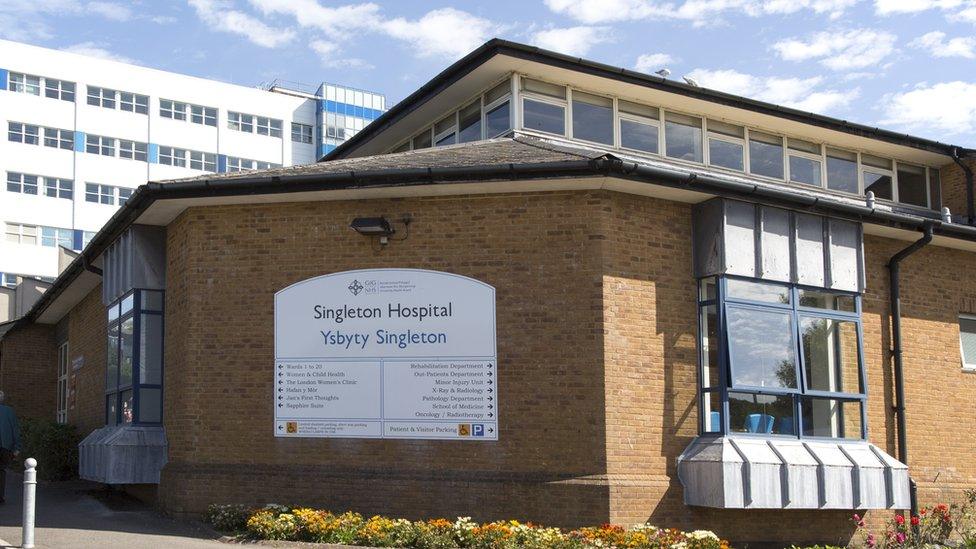Woman's stroke missed after Swansea Bay care errors
- Published

Swansea Bay University Health Board agreed to issue a full apology to the woman's family
An 87-year-old woman died after her stroke was not diagnosed until it was too late for treatment, a Public Services Ombudsman report has found.
Swansea Bay University Health Board failed to properly assess the woman's risk and did not keep adequate records, it said.
Her family had raised concerns over a left-sided weakness, facial droop and slurred speech.
The board apologised for the failings and the distress to the family.
It accepted the care and treatment was below the standard expected, and said it had already made improvements, strengthened training and launched a new policy promoting more face-to-face communication between medical staff.
The woman, who has only been identified as Mrs T in the report, died in August 2017 on her way back to the ward after an x-ray she was not well enough to have.
A complaint was made about the care she received between June that year and the day she died, and the ombudsman Nick Bennett has told the board to provide a full apology to Mrs T's family for the failings.

Nick Bennett said he was "extremely concerned" about the failings in Mrs T's care
He found that when doctors were asked to review Mrs T's condition in light of her family's concerns, two separate clinicians failed to document their attendance, assessment or findings.
A third clinician failed to note whether any symptoms of a potential stroke were considered at all. The ombudsman also criticised shortcomings in record-keeping.
There was a failure to appreciate a severe deterioration of Mrs T's condition, following gastroenterological complications, which meant she was too unwell to proceed with a planned x-ray on 23 August 2017.
It was following this x-ray, as she was being returned to the ward, that Mrs T died.
Mr Bennett said: "I am extremely concerned at the failure to adequately assess and treat the stroke symptoms that Mrs T presented with, even after her family intervened.
"By the time Mrs T's stroke was diagnosed on the afternoon of 27 June, it was too late to administer the appropriate medication."
Unnecessary delays
He added that Mrs T was "probably malnourished" after experiencing significant weight loss during her admission.
"Unfortunately, this was not addressed owing to errors and omissions in the records, which resulted in an unnecessary three-week delay in making a dietician referral."
The health board said it had worked on nutrition and hydration.
Mrs T also experienced severe anxiety and probable delirium, Mr Bennett noted, and said specialist input should have been sought to look at whether any other intervention could help.
"Such advice might have provided some reassurance to the patient's family, who felt that their concerns were dismissed and ignored," Mr Bennett said.
The health board said it recognised family involvement was "equally important as that of the patients themselves", and it has invited Mrs T's family to work on a digital patient story to promote that message within the health board.

The health board agreed to:
adopt a recognised stroke risk assessment tool and train all medical staff in its application
provide refresher training on the recognition and treatment of strokes
provide a full apology to the family of Mrs T
- Published24 January 2020

- Published7 February 2020

- Published2 July 2019
